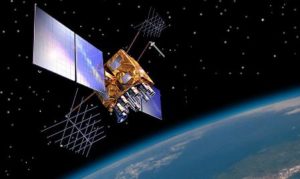On 15 December 2016, Europe’s satellite navigation system Galileo will start offering its initial services to public authorities, businesses and citizens.
Commission Vice-President Maroš Šefčovič, responsible for the Energy Union, said: “Geo-localisation is at the heart of the ongoing digital revolution with new services that transform our daily lives. Galileo will increase geo-location precision ten-fold and enable the next generation of location-based technologies; such as autonomous cars, connected devices, or smart city services. Today I call on European entrepreneurs and say: imagine what you can do with Galileo – don’t wait, innovate!”
 Commissioner Elżbieta Bieńkowska, responsible for Internal Market, Industry, Entrepreneurship and SMEs, said: “Galileo offering initial services is a major achievement for Europe and a first delivery of our recent Space Strategy. This is the result of a concerted effort to design and build the most accurate satellite navigation system in the world. It demonstrates the technological excellence of Europe, its know-how and its commitment to delivering space-based services and applications. No single European country could have done it alone.”
Commissioner Elżbieta Bieńkowska, responsible for Internal Market, Industry, Entrepreneurship and SMEs, said: “Galileo offering initial services is a major achievement for Europe and a first delivery of our recent Space Strategy. This is the result of a concerted effort to design and build the most accurate satellite navigation system in the world. It demonstrates the technological excellence of Europe, its know-how and its commitment to delivering space-based services and applications. No single European country could have done it alone.”
With the Declaration of Initial Services, which will be officially launched by the European Commission in Brussels on Thursday 15 December, Galileo will start to deliver, in conjunction with GPS, the following services free of charge:
- Support to emergency operations: Today it can take hours to detect a person lost at sea or in the mountains. With the Search and Rescue Service (SAR), people placing a distress call from a Galileo-enabled beacon can now be found and rescued more quickly, since the detection time will be reduced to only 10 minutes. This service should be later improved by notifying the sender of the emergency call that he/she has been located and help is underway.
- More accurate navigation for citizens: The Galileo Open Service will offer a free mass-market service for positioning, navigation and timing that can be used by Galileo-enabled chipsets in smartphones or in car navigation systems. A number of such smartphones have been on the market since autumn 2016 and they can now use the signals to provide more accurate positions. By 2018, Galileo will also be found in every new model of vehicle sold in Europe, providing enhanced navigation services to a range of devices as well as enabling the eCall emergency response system. People using navigation devices in cities, where satellite signals can often be blocked by tall buildings, will particularly benefit from the increase in positioning accuracy provided by Galileo.
- Better time synchronisation for critical infrastructures: Galileo will, through its high precision clocks, enable more resilient time synchronisation of banking and financial transactions, telecommunications and energy distribution networks such as smart-grids. This will help them operate more efficiently.
- Secure services for public authorities: Galileo will also support public authorities such as civil protection services, humanitarian aid services, customs officers and the police through the Public Regulated Service. It will offer a particularly robust and fully encrypted service for government users during national emergencies or crisis situations, such as terrorist attacks, to ensure continuity of services.
The Declaration of Galileo Initial Services means that the Galileo satellites and ground infrastructure are now operationally ready. These signals will be highly accurate but not available all the time. That’s why during the initial phase, the first Galileo signals will be used in combination with other satellite navigation systems, like GPS.
In the coming years, new satellites will be launched to enlarge the Galileo constellation, which will gradually improve Galileo availability worldwide. The constellation is expected to be completed by 2020 when Galileo will reach full operational capacity.
Background
Galileo is Europe’s Global Satellite Navigation System. It provides a range of state-of-the-art positioning, navigation and timing services to users worldwide. Galileo is fully interoperable with GPS, but will offer more accurate and reliable positioning for end users.
At the moment, the Galileo constellation consists of 18 satellites, all of which are already in orbit. The full constellation foresees a total of 30 satellites and is expected to be completed by 2020.
So far, the first Galileo smartphone by Spanish company BQ is already available on the market and other manufacturers are expected to follow suit. It will allow also application developers to test their ideas on the basis of real signal.
Galileo Initial Services are managed by the European GNSS Agency (GSA). The overall Galileo programme is run by the European Commission, which has handed over the responsibility for the deployment of the system and technical support to operational tasks to the European Space Agency (ESA).
For More Information
Galileo Initial Services – Frequently Asked Questions (MEMO/16/4382)
Source: The European Commission